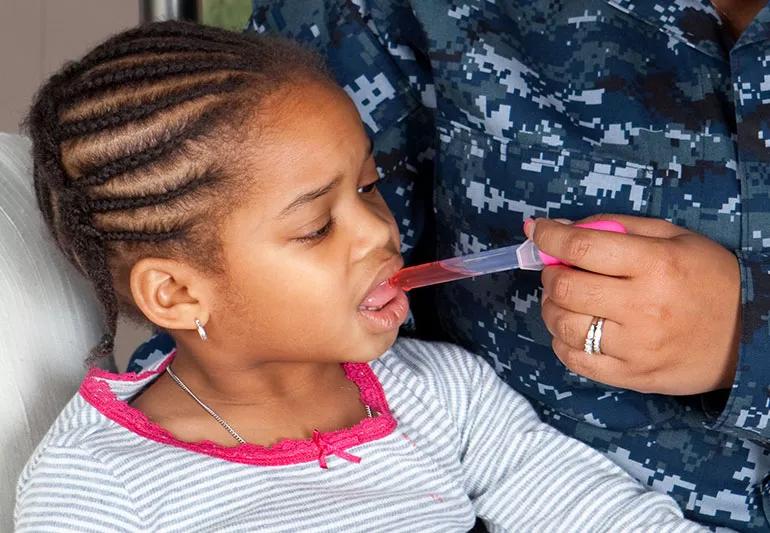Learn what meds to give at which ages, and which ones to avoid

Image content: This image is available to view online.
View image online (https://assets.clevelandclinic.org/transform/f588cd5c-ea69-44ba-8746-2518e0fb443e/childColdMedicine-184356802-770x533-1_jpg)
Mom giving medication to child
Your little one’s got the sniffles, and sneezes are sure to follow. But you’re at a loss as to which over-the-counter (OTC) medications are OK to give them. Can some hurt your child? Pharmaceutical Care Manager Alison Miller, explains.
Advertisement
Cleveland Clinic is a non-profit academic medical center. Advertising on our site helps support our mission. We do not endorse non-Cleveland Clinic products or services. Policy
Miller says it’s important to remember that supportive care is No. 1 for all ages. “These include providing a cool mist humidifier (avoid hot because it can burn a child) with a clean filter, fluids to prevent dehydration and lots of rest and TLC.”
In addition to these, Miller suggests using the following guidelines by age.
Advertisement
Advertisement

Sign up for our Health Essentials emails for expert guidance on nutrition, fitness, sleep, skin care and more.
Learn more about our editorial process.
Advertisement
Symptoms can overlap and be hard to distinguish, but there are some telltale differences
The flu, RSV, COVID-19, pneumonia and more typically circulate during cold weather months
The advice dates to 1574, but it doesn’t quite meet modern medical guidelines
Ultimately, the best medicine for a cold is time, fluids and rest
From garlic to elderberry, here’s how not to get rid of a cold
Colder temps bring flu worries, fall allergies, dry skin and more
You can’t cure it, but you can manage the symptoms
Here’s one TikTok trend you shouldn’t try
Type 2 diabetes isn’t inevitable with these dietary changes
Applying a hot or cold compress can help with pain
Pump up your iron intake with foods like tuna, tofu and turkey